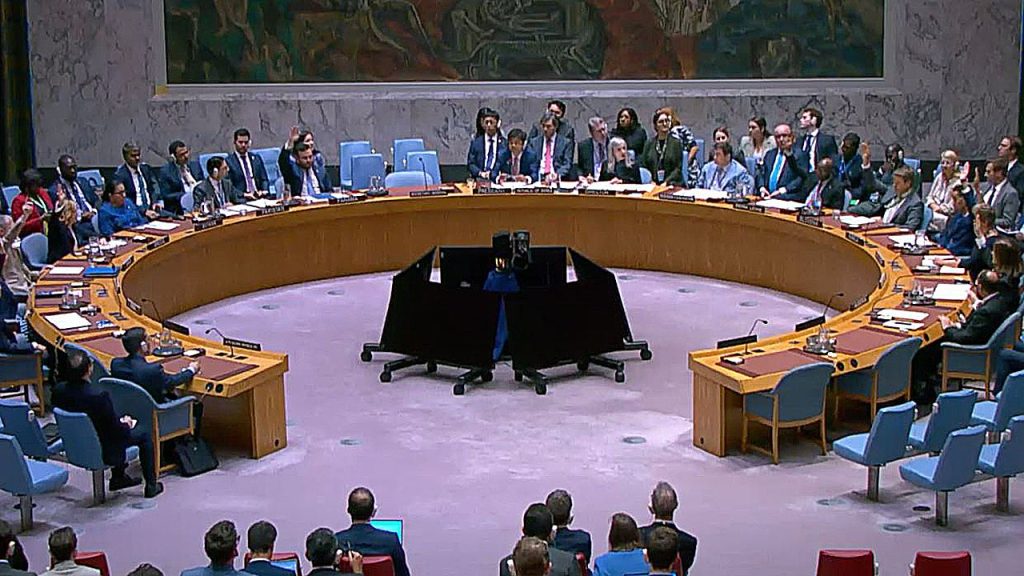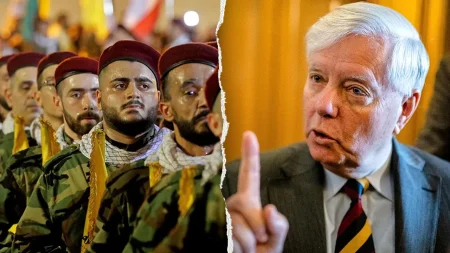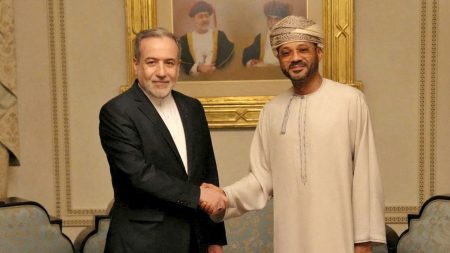UN Rejects Extension of Iran Sanctions Relief amid Global Tensions
The United Nations has rejected a resolution that would have extended sanctions relief for Iran, marking a significant shift in international relations and potentially escalating tensions in the Middle East. The resolution, brought forward by China and Russia, failed in a 4-9 vote, with Algeria, China, Pakistan, and Russia supporting the measure, while nine countries including the United States, United Kingdom, and several European nations voted against it. Two countries—Guyana and South Korea—chose to abstain from the vote, highlighting the complex diplomatic dynamics surrounding Iran’s nuclear program.
This pivotal UN vote came after Britain, France, and Germany triggered the nuclear deal’s “snapback” mechanism, effectively reinstating sanctions on Iran following stalled negotiations regarding its nuclear activities. The reimposed sanctions will have far-reaching consequences for Iran, including the freezing of Iranian assets abroad, prevention of arms deals with Tehran, and penalties for any development of Iran’s ballistic missile program. These measures represent a significant economic and diplomatic blow to Iran, which has been seeking relief from international sanctions for years. The sanctions’ reinstatement reflects growing concerns about Iran’s nuclear ambitions and its potential threat to regional stability, despite Iran’s repeated claims that its nuclear program is solely for peaceful purposes.
Russian diplomat Dmitry Polyanskiy expressed disappointment with the vote outcome, criticizing Western nations for choosing what he described as “clumsy blackmail” over diplomacy and dialogue. His comments reflect the deepening divide between Russia and China on one side and Western powers on the other regarding how to address concerns about Iran’s nuclear program. This split has broader implications for global geopolitics, as it reinforces existing tensions between major world powers and complicates efforts to find diplomatic solutions to international security challenges. Despite last-minute diplomatic efforts, including meetings between Iran’s foreign minister and his European counterparts, no breakthrough was achieved that could have prevented the sanctions from being reimposed.
The Iranian leadership has responded defiantly to these developments. Supreme Leader Ayatollah Ali Khamenei stated earlier in the week that Iran would not “surrender to pressure” and dismissed negotiations with the United States as a “dead end.” Iranian President Masoud Pezeshkian echoed this sentiment, characterizing the decision to reimpose sanctions as “unfair, unjust and illegal.” These statements suggest that Iran is unlikely to make significant concessions in response to renewed international pressure, potentially setting the stage for increased tensions and further diplomatic standoffs. The Iranian leadership’s firm stance also indicates that they may be prepared to endure economic hardship rather than compromise on what they view as their sovereign rights to develop nuclear technology.
The failed resolution and the reimposition of sanctions come at a time of heightened tensions in the Middle East, with ongoing conflicts in Gaza, Lebanon, and elsewhere threatening regional stability. Iran’s role as a significant regional power and its support for various non-state actors throughout the Middle East means that its response to these sanctions could have far-reaching implications beyond its borders. The international community now faces the challenge of balancing legitimate concerns about nuclear proliferation with the need to avoid further destabilizing an already volatile region. The sanctions’ effectiveness will depend not only on their implementation but also on how Iran chooses to respond to this renewed pressure.
Looking ahead, the path forward remains uncertain. While sanctions aim to pressure Iran back to the negotiating table, history suggests that economic coercion alone may not achieve the desired diplomatic breakthrough. The possibility remains for further diplomatic efforts, though the entrenched positions on all sides make quick resolution unlikely. The situation underscores the complex challenges facing the international community in addressing nuclear proliferation concerns while navigating competing geopolitical interests and regional dynamics. As these sanctions take effect, the world will be watching closely for signs of how this renewed pressure might reshape Iran’s domestic politics, regional activities, and approach to its nuclear program—with significant implications for global security and stability in the months and years ahead.














